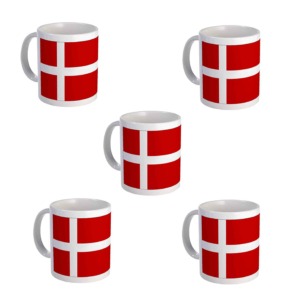Five unwritten rules of Danish working culture
And how you can explain them to your international employees
There are over 290,000 full-time foreign employees in Denmark. As many of 1 out of 8 workers in Denmark now hold non-Danish passports, according to a new study from Dansk Erhverv. These energetic, talented employees help keep Denmark running smoothly, and we need their skills.
But Danes sometimes need to reach out and help international employees understand the unwritten rules of Danish working culture. Many Danish managers are surprised to discover the unwritten and unspoken rules they have been expecting the newcomers to follow, without really explaining them.
In my new book, “How to Work in Denmark: Tips for Finding a Job, Succeeding at Work, and Understanding your Danish Boss,” I explain how international employees can fit into the Danish workplace.
Unwritten rule of Danish working culture #1
We’re all equal. Job titles don’t really mean anything.
Job titles don’t mean much in Denmark. One aspect of Jante Law is that strutting around showing off your title means people will dislike you. But job titles mean a great deal in many foreign cultures, including bragging rights for parents and maybe even suitability for marriage.
A title that might not matter to people who grow up in Denmark could matter a lot to internationale specialister, who often gage success and talent by job titles and placement within a departmental hierarchy. Yet in the Danish flat hierarchy, there are simply a limited number of places to “move up” to.
Danish managers can help by explaining that in Denmark, career development is often horizontal instead of vertical – colleagues can take on new roles and challenges while remaining at what is technically the same place in the hierarchy.
Unwritten rule of Danish working culture #2
When we have a meeting, everyone will contribute with his or her ideas, and they’ll speak out even if they disagree with the boss
In Denmark, we expect that everyone will share input in a meeting, even the most junior person in the room. Challenging the boss is expected; you were hired for your expertise, weren’t you?
But in many cultures the boss is all-powerful, and to displease him or her means you could find yourself with no job, no health insurance, and no way to send your children to school. People who come from these cultures may nod and pretend to agree with the boss and then complain about the decision later.
As a Danish manager, when you are in the process of making a decision, you may find it useful når du lede internationale medarbejdere: “Tell me two things you like about this approach, and one thing you dislike.” You have now given them permission to disagree with you – or even ordered them to!
Keep in mind that gender equality is something we take for granted in Denmark. Women coming from less equal societies – even from elsewhere in Europe – may hesitate to disagree with a male boss. When you manage international workers , state explicitly that this is not only allowed, but expected, then create a structure for it.
Unwritten rule of Danish working culture #3
If I give a colleague an assignment and she doesn’t quite understand it, she’ll ask questions until she does.
Having grown up in the Grundtvig system, Danes are used to asking question after question until they are satisfied with the answer. But international employees who grew up in different systems might be worried that asking too many questions will make colleagues think they’re not capable of the job, or that it will make them lose face.
Sometimes Danes assume that internationals know all they need to know because they aren’t asking questions. But newcomer may be fearful or embarrassed and may try to cover up their lack of knowledge with a nod or a smile. As a Danish manager, offer help more frequently when you manage international employees than you would to a Dane. In addition, give more positive feedback to an international than you might to a Dane; they will appreciate the reassurance.
Unwritten rule of Danish working culture #4
When my colleague can sense that he won’t be able to meet a deadline, he’ll let me know as soon as possible. My door is open.
When they welcome a new employee, Danish bosses like to say, “My door is always open.” But international employees don’t always understand what that really means, which is that you expect them to come to you proactively when they need more resources, or when they are behind on a project and won’t be able meet a deadline.
By contrast, it is common in some cultures to wait until the last minute and then come with an excuse as to why the project can’t be finished or, worse, try blame some other colleague.
Being proactive is part of the Danish working culture; it is not universal. As a Danish manager, when you go into your speech about how your door is open, explain that you mean you want international employees to come to you quickly when something goes wrong, not cover it up as the problem gets worse.
Unwritten rule of Danish working culture #5
Everyone should be able to have a sense of humor about themselves. Don’t take yourself so seriously! We’re all human.
When they welcome a new employee, Danish bosses like to say, “My door is always open.” But international employees don’t always understand what that really means, which is that you expect them to come to you proactively when they need more resources, or when they are behind on a project and won’t be able meet a deadline.
By contrast, it is common in some cultures to wait until the last minute and then come with an excuse as to why the project can’t be finished or, worse, try blame some other colleague.
Being proactive is part of the Danish working culture; it is not universal. As a Danish manager, when you go into your speech about how your door is open, explain that you mean you want international employees to come to you quickly when something goes wrong, not cover it up as the problem gets worse.









